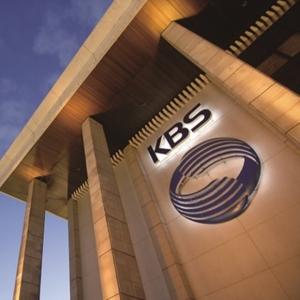While KBS is pushing for a license fee increase, one of the main arguments against the increase in KBS license fee is that’KBS has many billions of annual salaries.’ Actually, what percentage of KBS’s billion-dollar annual salary will account for?
On the 29th, Rep. Kim Woong’s Power of the People said on his Facebook page, “60% of KBS employees receive more than 100 million won in annual salary, and 2053, 73.8% of the billionth annual salary, are unemployed.” And wrote.
Rep. Kim said, “Isn’t it a profit-sharing system to extract license fees from people suffering from economic difficulties and give them to KBS with a billion-dollar annual salary?”
Rep. Kim’s article was written by Park Jae-ho, a Democratic Party member (Namgu-eul, Busan) on the 29th, “People in Busan watched too many Jojung-dong (Chosun, Joong-ang, Dong-a), TV Chosun, and Channel A, so it is pitiful how they are worried about Korea.” It was written criticizing what I said.

In fact, one of the representative logics against KBS’s increase in license fees is that’KBS has many billions of annual salaries, so why not reduce the annual salary but increase the license fee?’
On the 27th, KBS President Yang Seung-dong stated at the board of directors who proposed an adjustment of the KBS license fee on the 27th, saying, “Some say, “If KBS is difficult, the wages of employees should be drastically reduced” and “I will take the criticism humbly and discuss it with all my heart.” have.
[관련 기사: KBS 이사회 수신료 3840원 인상안에 거친 공방 ]
KBS said in an official position on the 30th, “The actual annual salary of 100 million won or more among KBS employees is 46.4% based on the 2020 annual salary book.” “This ratio is on a steady decline from 51.7% in 2018.” According to KBS, the annual salary of KBS over 100 million won in 2018 was 51.7%, but decreased to 48.8% in 2019 and 46.4% in 2020.
As Congressman Kim Woong argued, KBS’s billionaire annual salary is not 60%, but 46% can be seen as high. Perhaps for this reason, Rep. Kim Woong also wrote on his Facebook page on the 30th, “I am wondering which public institution employees receive nearly half billions of annual salary,” and “I hope you will receive the audit of the auditor again rather than self-investigation.”
However, KBS’s position is that 908 high-paid workers will retire over the next five years, and they are making their own efforts by freezing wages in 2020.
KBS said, “KBS is a national flagship broadcaster of ’86 Asian Games’, ’88 Seoul Olympics’,’All-day broadcasting’, and’satellite broadcasting’, etc., according to national events and policies. “We hired a large number of manpower until the mid-to-late half,” he said. “For this reason, the employees employed during this period have a high number of years of service and a high percentage of them.
“As of the end of 2020 (as of December 2020), as of the end of 2020, as of the end of 2020 (as of December 2020), the average age was 45.9 years, and the average years of service for employees was 18.5 years, because reflecting the implementation of the extension of the retirement age and self-reliance efforts to minimize the hiring of new employees in recent years. It is on the high side.”
KBS said, “Over the next five years, 908 high-paid employees will retire from KBS. Above all, KBS has maintained an average wage increase rate of about 0.6% over the past three years. In particular, in 2020, wages were frozen to participate in overcoming the national crisis caused by Corona 19.”
In particular, KBS said, “In the case of the president and executives, wages have been frozen for three consecutive years since 2017, and the president returned 20% of the wages in 2020, and all executive agencies have returned part of their wages since 2019. It is expected that the average annual salary will be lowered further in the future through various efforts.”
KBS said, “It is true that the annual salary for broadcasting media jobs is relatively high compared to other industries, regardless of domestic or overseas,” and said, “KBS also has to maintain an appropriate level of wages to maintain its overall competitiveness.”
“KBS has been implementing various self-reliance efforts according to the public’s perspective as a broadcaster of the public.” In particular, as mentioned above, high-skilled workers with long years of service retire due to retirement age, etc., and instead hire appropriately sized new employees. If so, the average annual salary of employees will be significantly lowered in the future.”
The KBS side also refuted the claim raised by Rep. Kim Woong that’out of the annual salaries of 100 million won or more, 2053 are unemployed’.
KBS said, “In 2020, there were 1,500 unemployed workers, more than 500 fewer than Rep. Kim Woong’s claim, and if some new employees are recruited after the restructuring in the future, the number and ratio are expected to gradually decrease. They don’t have positions such as general manager, etc., but everyone is working as a working man in the field of production such as broadcasting.”
KBS said, “Through the reorganization of the rank system in January 2020, the highest level of management and 1st rank were completely abolished, thereby greatly suppressing the level of remuneration of the top ranks and promoting the slimming of the organization.” It has decreased from 337 to 209 in 2020, and will continue to decrease with each passing year, and eventually the number will be zero.”
KBS asked Rep. Kim Woong to delete the post through an official position, and emphasized that “KBS will do its best to make the organization slimmer and streamline management through the improvement of the wage system and job redesign.”
Copyright © Media Today, unauthorized reproduction and redistribution are prohibited.
